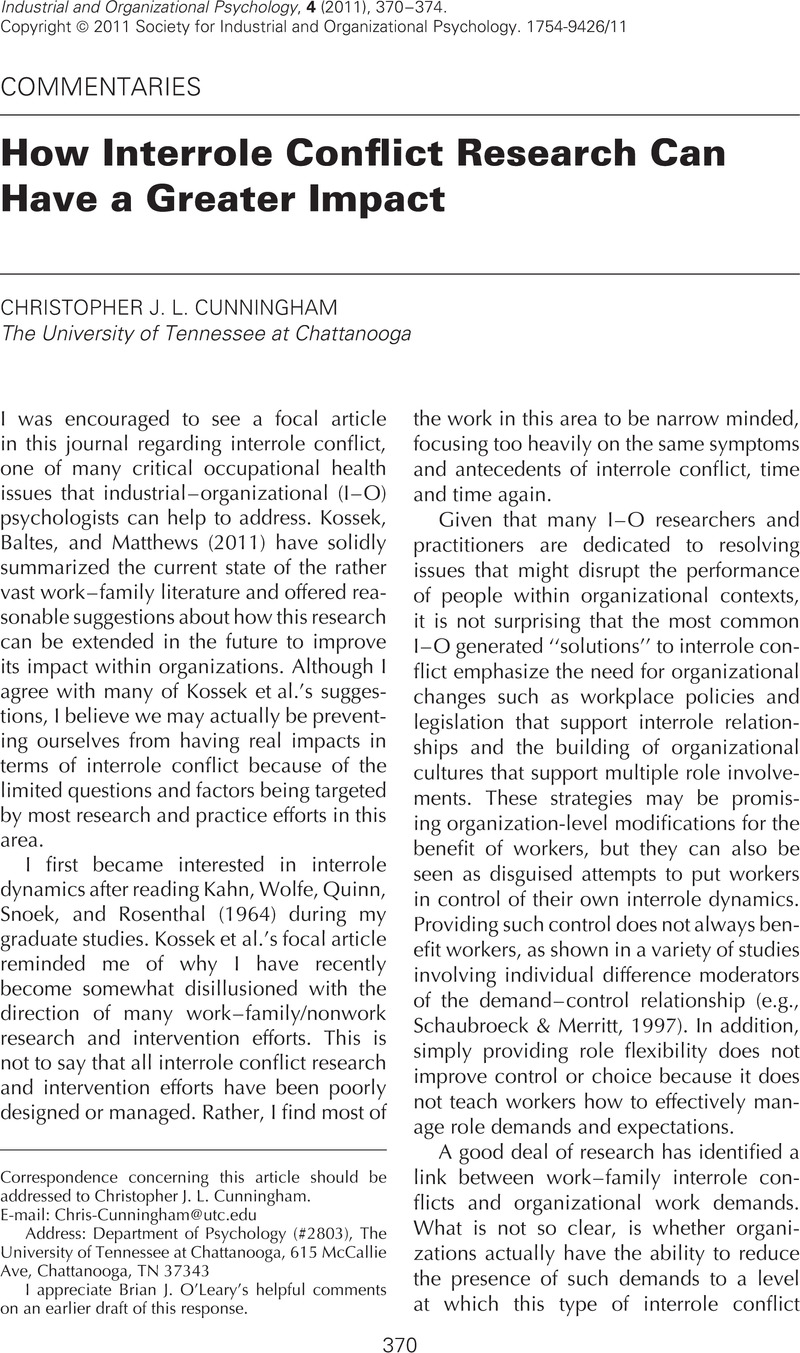Crossref Citations
This article has been cited by the following publications. This list is generated based on data provided by Crossref.
Kossek, Ellen Ernst
Baltes, Boris B.
and
Matthews, Russell A.
2011.
Innovative Ideas on How Work–Family Research Can Have More Impact.
Industrial and Organizational Psychology,
Vol. 4,
Issue. 3,
p.
426.
French, Kimberly A.
Liu, Songqi
Ohannessian, Christine M.
and
Tennen, Howard
2024.
How does work affect fathers' daily interaction with adolescents? An expanded self‐regulation perspective.
Journal of Organizational Behavior,
Vol. 45,
Issue. 4,
p.
518.
French, Kimberly A.
and
Liu, Songqi
2024.
Making Up for Lost Time: When and How Time-Based Work-to-Family Conflict Motivates Parenting.
Occupational Health Science,



